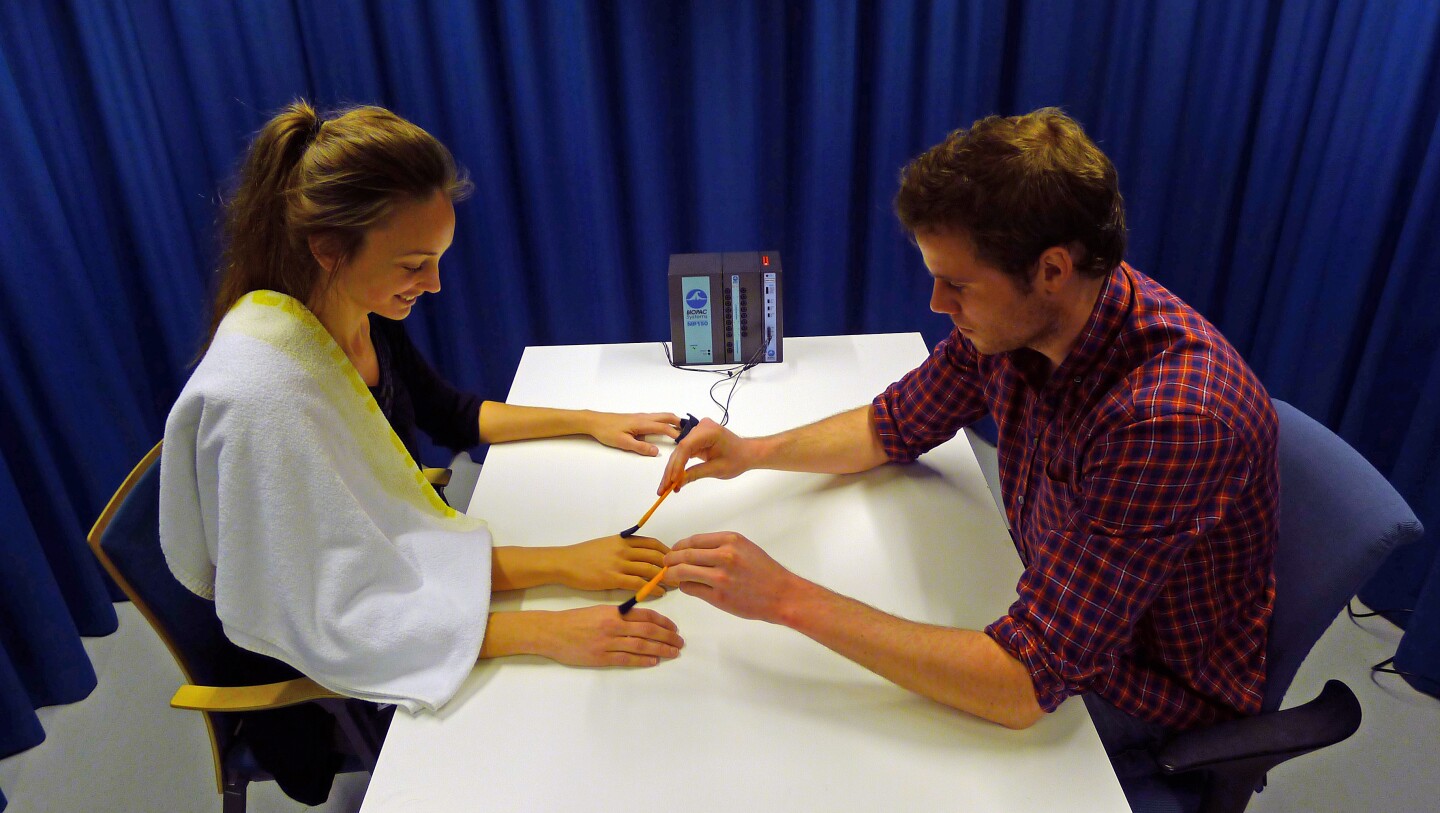For millennia, philosophers have debated whether or not the self exists solely in the mind, the body, or both. Well, it's unclear whether this will help clear things up or just muddy the waters further, but Swedish neuroscientists are now claiming that the human brain can add outside objects such as a third arm to one's physical sense of self, and that people can even mentally project their "self" out of their own body and into someone else's. If these findings hold up, the implications for virtual reality, robotics and prostheses could be substantial.
Experiments were performed at Stockholm's Karolinska Institutet medical university, in which a highly-realistic prosthetic right arm was placed on a table beside human subjects' own arms, so they could see all three. Scientists then simultaneously touched both the prosthetic arm and the subjects' own right arms with a small brush, at the same location on both arms.
"What happens then is that a conflict arises in the brain concerning which of the right hands belongs to the participant's body," said Arvid Guterstam, one of the scientists conducting the research. "What one could expect is that only one of the hands is experienced as one's own, presumably the real arm. But what we found, surprisingly, is that the brain solves this conflict by accepting both right hands as part of the body image, and the subjects experience having an extra third arm."

When scientists threatened either the prosthetic arm or the real arm with a knife, the subjects' measured stress response was the same.
It is hoped that the scientists' findings could eventually be applied to people such as partially-paralyzed stroke victims, so that they could incorporate a functioning prosthetic arm into their body image while still also retaining their existing paralyzed arm within that image. It has even been suggested that resulting technology could have applications for people in demanding work situations such as paramedics or firemen, who could always use an extra arm.
Transferring the self
A related study at Karolinska is said to have resulted in people perceiving that their physical selves were located not in their own bodies, but in those of other test subjects. We're currently waiting to hear back from the university, as to how this was achieved or verified."By clarifying how the normal brain produces a sense of ownership of the body, we can learn to project ownership onto artificial bodies and simulated virtual ones, and even make two people have the experience of swapping bodies with one another," stated study leader Henrik Ehrsson.
So far, he has reportedly been able to "transfer" subjects' selves into bodies of a different sex, age, or size, but not into inanimate objects. In one ongoing robotics-related project, however, researchers are trying to determine if someone's perceived body can be shrunk down to the size of a Barbie doll.





